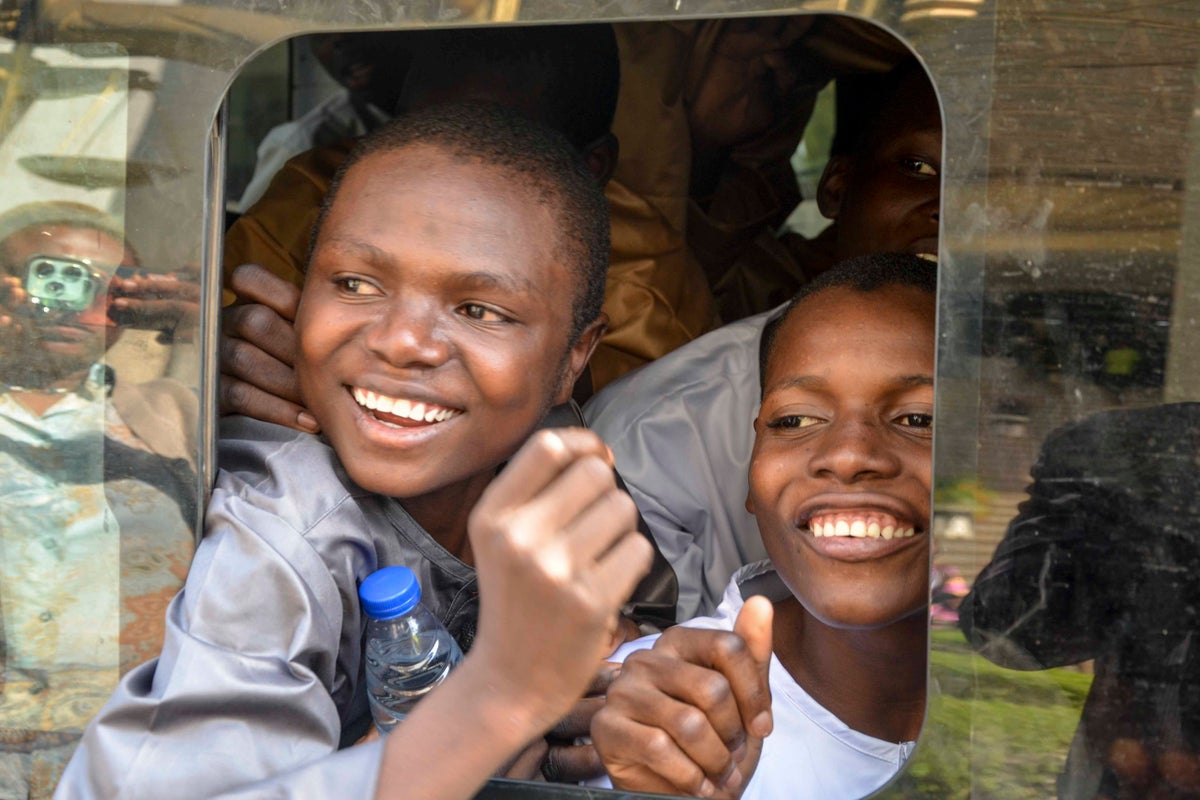
Nigerian authorities released Tuesday 29 children who have been detained for over two months and potentially faced the death penalty for their alleged participation in protests against the country’s record cost-of-living crisis following growing calls for their release.
The children, aged 14 to 17, looked excited and full of life as they waved to cameras after their release at a court in the capital, Abuja, where they stood trial. It was a stark contrast to when they were first brought to the court looking malnourished and dressed shabbily, with some collapsing out of exhaustion.
They were among more than 70 people facing charges of destruction of property, mutiny and treason, which carries the death penalty, after the August protests that shook the country and culminated in security operatives killing some demonstrators and arresting hundreds.
Ado Abdullahi, whose two sons were among the detained minors, said they never participated in the protests in their home state, Kano, and were running errands when they were arrested and taken to Abuja.
“The police just came and took them," Abdullahi told The Associated Press as he waited for them to get home after their release.
Another parent Ikililu Sani said his son, Habibu, was at the time retrieving his motorcycle from a repair shop when he was arrested.
There had been no news of the children’s detention until their arraignment, sparking outrage and renewing concerns over deteriorating human rights in Africa’s most populous country.
Under rising pressure from activists, Nigeria's President Bola Tinubu ordered their release on Monday and ordered an investigation of law enforcement agents involved in the arrest and prosecution of the children.
The police earlier defended their actions, but said Monday night it started an investigation into allegations the minors were mistreated while in custody.
Lawyers and activists urged the Nigerian government to see to the welfare of the children and provide them with educational support. The children's release is only "the first step in the right direction," said Marshal Abubakar, one of their counsels.







